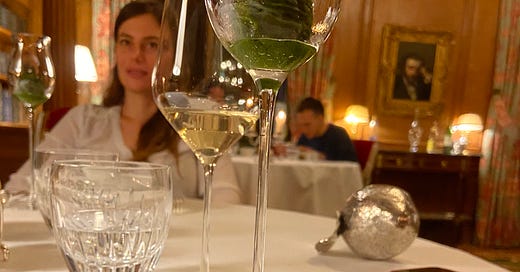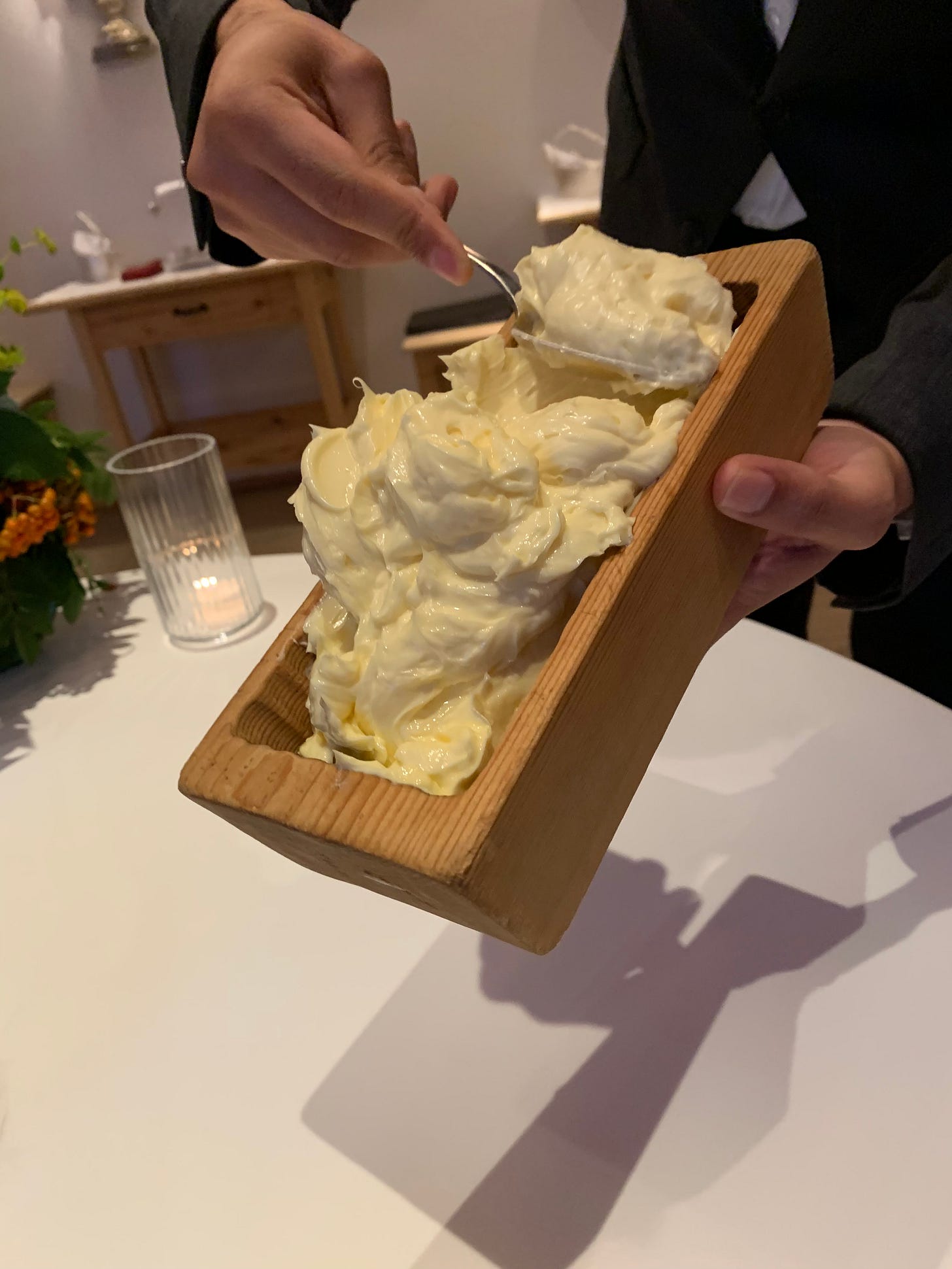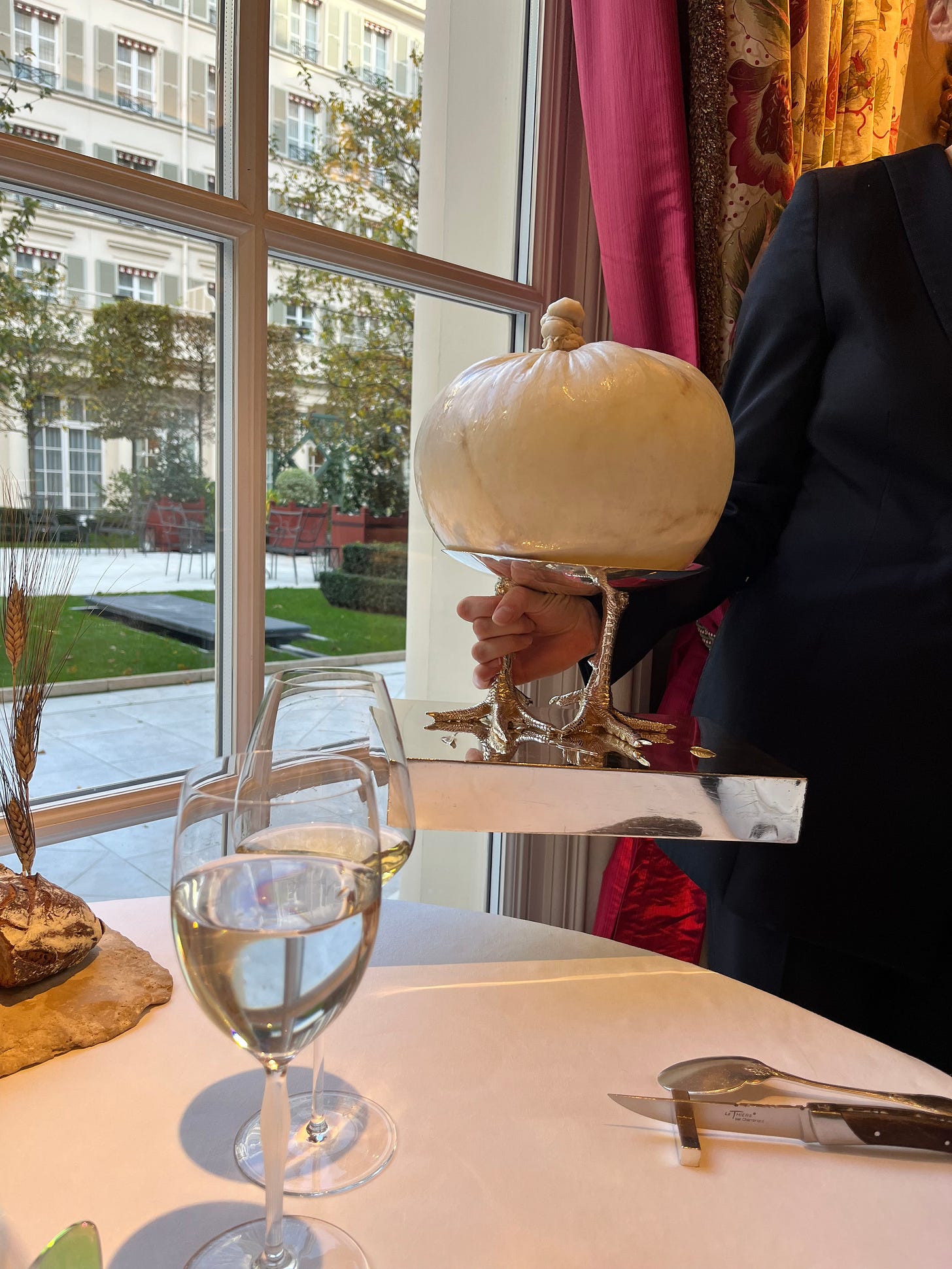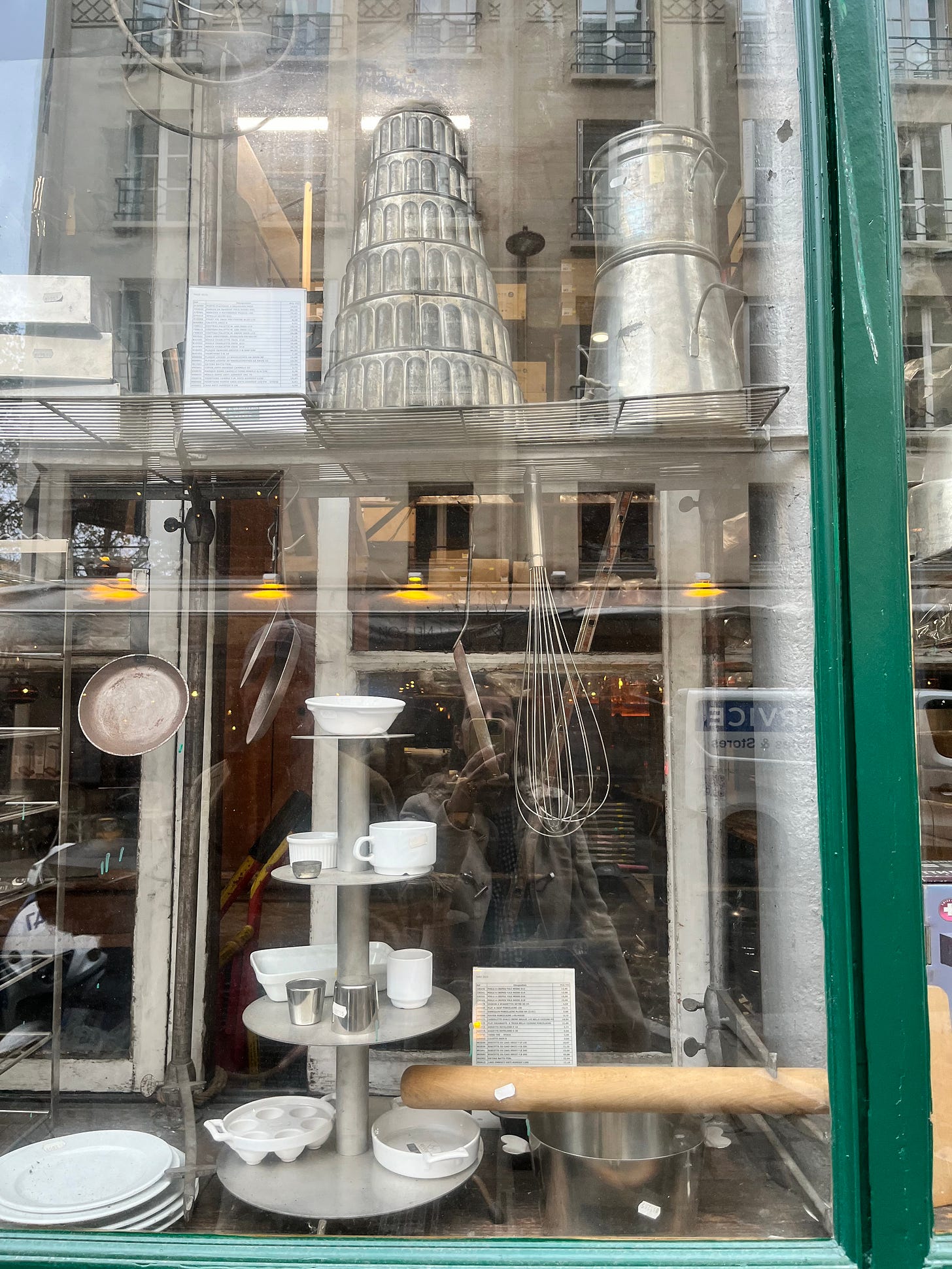Gastrodelulu
No, honey, you are not a "food connoisseur". What if we all focused a bit more on service and a bit less on how creamy is that quenelle?
We should all take a step back into a more humble stance.
Including me.
Most of us do not understand enough about gastronomy and food to make recommendations.
It is not because one eats out 300 days per year that one becomes a gastronomer - and do not be fooled into believing it, especially when you see it on social media. It is also not because you read it all that you are an expert. The Internet is packed with scribblers basing their purported knowledge on being an Alumni of one of the EU gastronomy schools (Pollenzo, Basque Culinary, etc).
As in many other things, gastronomy is also based on the sum, the total.
Talent and luck are essential, as well as recognising tastes, spices, layers, and preparations. Of course, it helps to have eaten out a lot. It is, however, not enough. Moreover, in most cases, we can be “experts” of some of the cuisines we are most familiar with - the ones we eat, read a lot about, and even cook and eat frequently so that we can recognize nuances, pitfalls, and greatness.
So I am always flabbergasted that most “social media foodies” want to be treated as “experts” about food - when that is precisely their Achilles heel.
One area where they do not generally venture—nor do the plethora of gastronomic journalists and other strange organisms inhabiting this sector of society—is the dining room.
Everyone and their dog can understand when they are treated well, poorly, or excellently, and everyone can quickly devise checklists and measurable variables for service.
And yet, they are all stuck in describing how moist a piece of chicken is.
As you know, I am tired of foodism.
I have retreated into a world based on mantras like “I go eat where I want,” I could not care less about the “latest news in town.” So, in the past year, I visited new places only against my will and had a very pleasurable life revisiting the places I used to love.
The Gastrodelulu people touting the latest place make me sad for their wellness. Most do not have infinite resources, and when I was still chasing unicorns, I often left restaurants feeling robbed.
No more.
I go where I like (this is why I went four times at Bagá this fall and did not venture to discover other places that may have opened anew).
But the service, my readers.
The service is where everyone should focus.
A White Towel
In August 2021, we ate at the former restaurant by Norbert Niederkoefler. I often talk about the salad they served there - to me, the highlight of the dinner. I often talk about the marvellous butter they whipped for us and their salad.
But this time I want to tell you about another part of that dinner.
Because…we did not eat well at that time.
We had to return two courses to the kitchen (one was carbonised, just for you to get the picture of how bad that was), which is unthinkable in a three Michelin stars restaurant. The Chef was there, and we told him at the end. He was indifferent, and we turned to ice just after speaking to him - let’s say we did not get along well. Even if I admire him and praise his job theoretically (I have his autographed book), that dinner was a bit of a disaster, food-wise. So far, we have not visited his new place - and there is a reason why.
The service was the only thing that kept that dinner together, between courses that had to be sent back because they were inedible.
It was the best service I have experienced so far, and it was one of the best. It was better than Epicure in Paris - in terms of comparison, for instance, which was absolutely stellar as well.
The attentive, caring, empathic, yet perfect service offered by Niederkoefler’s staff made up for all the kitchen failures (many). I was in love forever when they changed the tablecloth for a fresh one for the dessert, with a delicate dance and exact movements.
I am very reticent about trying the new space.
Service, service, service
Going to a restaurant has become very democratic in the last century. However, this means most restaurantgoers come from households with minimal formalities around the table and zero understanding of the subtleties of high-end service.
When I dined at Epicure in Paris, it was strikingly clear.
Between a wealthy Russian couple and an equally affluent Chinese one, we felt that still, even with all that money, something was missing. They did not come from generational savoir-faire (that has little to do with present money but much to do with money present in a family 50-100 years ago). And every action, movement, and expression betrayed them.
The waiters, especially the elder ones, were far more elegant than the people they served.
I felt the same way at the house of some friends who do have servants—their manners are still not those I remember of the people who worked or had close contacts with the aristocrats of lore.
That je ne sais quoi is completely missing from people slathered in gold today. I found more elegance and respite in a farmer who served me a vegetarian tagine in the Atlas than in some money bros in La Mamounia.
FOH
Front of the House (FOH) is as essential for my satisfaction as a customer as whatever happens in a kitchen.
Waiters ultimately make you feel welcomed, cared for, or abandoned in a cave of despair. It is up to them to elevate your experience or make it delusional.
It is up to the sommelier to master the pace and mix of what I want in my drinks, making it either an ethereal moment of mind connection or making me feel they are pushing an unwanted beverage against my will.
The Director orchestrates a meal, which can either become celestial or hell. Frankly, in most cases, the Chef is not as important. I would say: in almost all cases. Or when a Chef gives his name to several restaurants, will he or she be in all of them at the same time?
Unlikely, in this timeline.
So, suppose the kitchen is staffed with capable people who aren’t always or necessarily “the” Chef. Why are writers still so obsessed with this invisible entity, making him or her the dealbreaker of a “gastronomic experience”?
Isn’t it more honest to “judge” the whole but primarily focus on the service?
Yes, someone in the kitchen makes the plates (and has thought hard and long about them, and someone is plating them and washing them). But someone else makes us feel good as we eat, during the whole meal, not just during the fleeting moment we put something into our mouths.
When will journalists start praising and discussing service again?
I have had enough of “Masterchef”, and nobody cares anyway, now that you are doing all the same shit, like fucking tartellettes and golden eggs with caviar.
Who cares.
We care about service.
We want to elevate runners, servers, directors, and sommeliers to the discussion because they are more likely to determine whether we feel good or bad about a meal.
Do not be delusional.
We hardly have the palate, knowledge, and skills to understand a plate anyway. However, we can all recognize good and bad service.
Do not be delulu.









Bravo! Before the internet, I spent 2 years explaining the menu and serving at The French Laundry. In those days, people who came mostly knew someone personally who had eaten there. It was very much word of mouth. And these guests were worldly, polite and thrilled by the experience we were delivering. But towards the end of my time, the word had gotten out and we'd get more and more customers who were there because they could afford it, wanted to say they'd come and to complain about things they didn't understand. At least there weren't ring lights, cell phones and Instagram. Thank you for this post.
There was this waiter at this Palestinian restaurant I go to in San Diego. The food is good, not mind boggling. Pizza, falafel, etc. He hasn't worked there in years. He was in training to be a firefighter, anyway he was the best waiter I have ever had in my life and fifteen years later I still remember him.